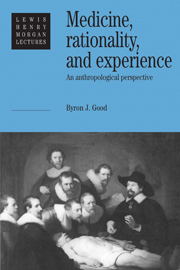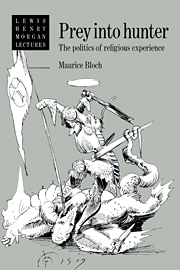2 results in Lewis Henry Morgan Lectures

Medicine, Rationality and Experience
- An Anthropological Perspective
-
- Published online:
- 05 June 2012
- Print publication:
- 26 November 1993

Prey into Hunter
- The Politics of Religious Experience
-
- Published online:
- 15 December 2009
- Print publication:
- 17 October 1991

